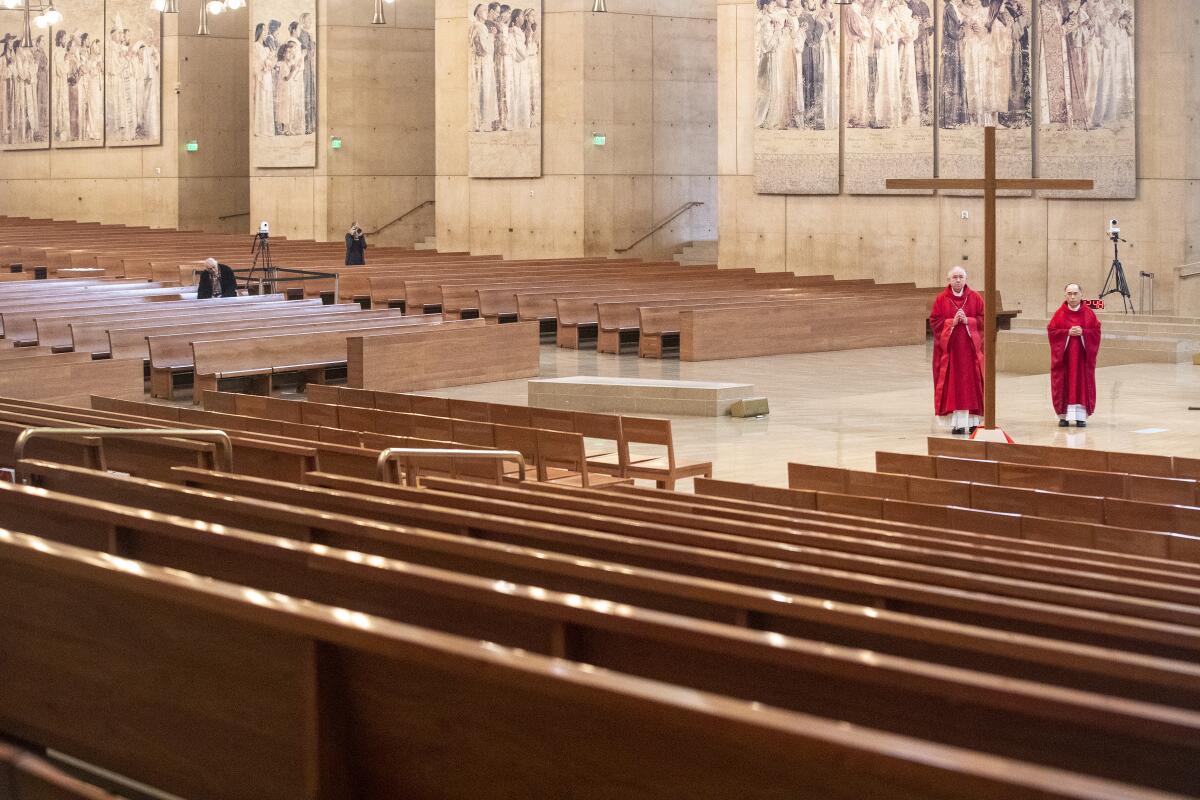Letters to the Editor: Catholic churches don’t have billions lying around. They need PPP money

- Share via
To the editor: My church, St. Mary of the Assumption, received a federal Paycheck Protection Program loan of $125,000. (“Sitting on billions, Catholic dioceses amassed taxpayer pandemic aid,” Feb. 4)
Since our church doors closed at the beginning of the pandemic, we have expanded our food bank and buried 275 people. We visit PIH Health Hospital in Whittier three times a week and answer emergency calls. We continue to teach children in our grade school and celebrate the sacraments.
We have been confused by the government guidelines, but all of our services are held outside because we believe it is safer. We have also asked our elderly parishioners and those with compromised health to stay home and participate online. Our weekly attendance is 25% what it was pre-pandemic, and our offerings are 75%.
With the PPP loan, we were at first able to pay our employees’ salaries; when the money ran out, we had to lay off five staff members.
It’s an old myth that the Catholic Church has billions of dollars lying around. I am grateful that we qualified for a PPP loan; I believe we used that money well. If we qualify for another loan, our church will apply and with that money feed more hungry, comfort more sick people, bury more of our dead and pay more salaries.
The Rev. Patrick Keyes, Whittier
..
To the editor: Why are churches getting relief through the CARES Act at all?
Unquestionably, churches are businesses. But unlike a hair salon or restaurant, the 1st Amendment protects churches’ independence from government regulation and taxation.
So, when times get tough and parishioner donations drop, why should taxpayers step up to save a church, no matter how noble its mission?
Even church leaders are ambivalent about accepting PPP money. In a piece last year in Christianity Today, Pastor Jon Costas asked, “Will accepting a large governmental subsidy rob our members of an opportunity to give sacrificially and experience the Lord’s provision?”
His question gets to the core of the Establishment Clause, which is meant to protect religions from government dependence and the resultant perversion of the tenets of their faith.
Gerald Gollin, Solana Beach
More to Read
A cure for the common opinion
Get thought-provoking perspectives with our weekly newsletter.
You may occasionally receive promotional content from the Los Angeles Times.






